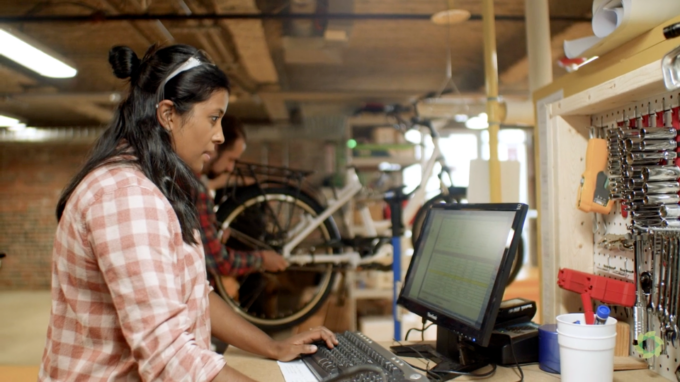Large, established private sector players—let’s call them corporates—have a critical role to play in climatetech innovation. Through their domain expertise and financial scale, corporates can contribute specialized resources and capital to accelerate technology development. Their position as incumbents in a largely B2B space also means corporates can unlock key commercialization pathways for innovation—either directly as customers themselves, or indirectly as channels to other customers. And when it comes to achieving worldwide deployment, corporations’ global footprints can serve as springboards for climatetech innovation to jump borders for sweeping transformation.
Greentown Labs has long recognized this important role. Our Incubator Partnerships Program engages corporates in industries from energy to consumer packaged goods and invites them into dialogue with our community of 200 climatetech startups through private pitch events, topic roundtables, industry deep dives and more. These partners become advisors, mentors, investors, and pilot customers for our startups, and our startups, in turn, help them to advance their own innovation and sustainability priorities.
At the end of the day, however, partnerships are about relationship-building, which is hard and time-consuming. Differences in timescales, communication styles, and working cultures between startups and corporates mean that sometimes, relationships struggle to get off the ground. Startups stumble through corporate structures. Emails get lost in crowded corporate inboxes as short-term priorities take over. Collaboration slows down or grinds to a halt. And we know all too well that, when it comes to the climate crisis, there is simply no time to spare.
Enter Greentown Go.
With a mission of decarbonizing the key greenhouse gas-emitting sectors, Greentown Go programs inject momentum and traction into startup-corporate collaborations. Through Greentown Go, industry giants and innovators reach partnership outcomes that propel the climatetech revolution forward, from pilots to licensing deals to CVC investments and beyond. Greentown Go accelerates that relationship-building process.
Greentown Go is an evolution of our Greentown Launch program framework into something bigger, better, and more impactful. Over the last eight years, we’ve hosted more than a dozen Greentown Launch program cycles, engaging industries from offshore wind to construction. We’ve learned that, for all the particularities of each industry, the basic tenets of partnership-building remain the same. We’ve also learned that as North America’s largest climatetech incubator, Greentown is uniquely positioned to bridge the gap between startups and corporates. Startups trust us to understand and prioritize their needs. Corporates value the access we provide and the expertise that underlies our track record.
When we look back over all that has been accomplished and all of the technologies our programs have touched over the years, we see many classic climatetech innovations, including passive building materials, energy storage solutions, and novel fuel cell technologies. We also see solutions that challenge the boundaries of traditional climatetech, such as food packaging that extends shelf life, traceability software for supply chains, and uncrewed surface vehicles for marine mammal monitoring in the context of offshore wind development. These wide-ranging examples remind us that real-life climate solutions are complex and interconnected. When it comes to activating the full strength of the private sector in the service of the climatetech revolution, we need to roll up our collective sleeves and get to work, everywhere, all at once.
So let’s go! Whether you’re a climatetech startup, a large corporate, or somewhere in between, we hope you’ll check out our current and upcoming Greentown Go programs and join us as we Go Build, Go Energize, Go Grow, Go Make, and Go Move our way to a decarbonized global economy.

